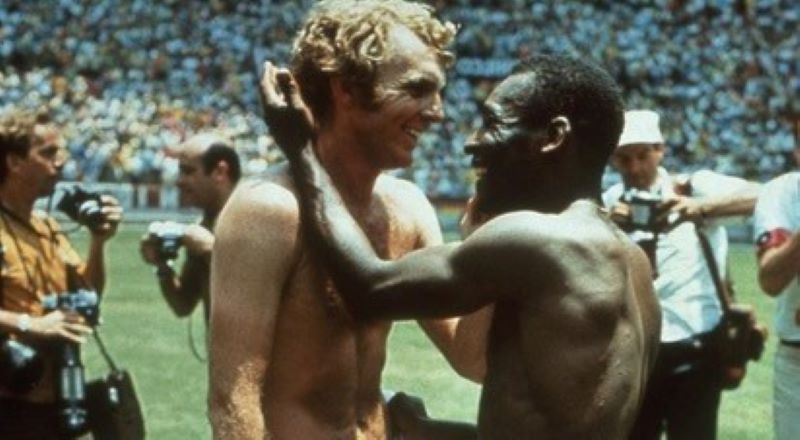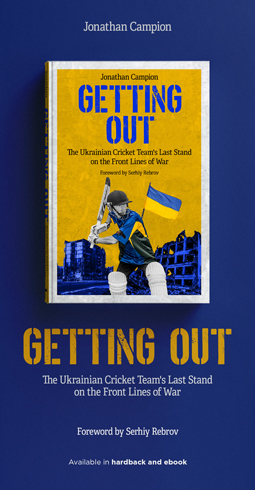
SIR GEOFF HURST ON THE LATE, GREAT PELÉ
SIR GEOFF HURST ON THE LATE, GREAT PELÉ
To mark his 80th birthday Sir Geoff Hurst selected his 80 great sportsmen. Following the sad news of Pelé's passing, here is the chapter Sir Geoff wrote about arguably the greatest footballer ever.
I would have to select one Edson Arantes do Nascimento as the greatest footballer ever to grace a football pitch, better known across the world, of course, as Pelé. I played against him twice, and have seen enough footage of him as a younger player to know that he was sent here from the gods.
My first up-close view of him came in Rio in 1969 in front of a roaring 160,000 crowd in the vast Maracanã Stadium. It was a warm-up match to get us prepared for the 1970 World Cup in Mexico, and Alan Mullery did a superb marking job on Pelé before two late goals gave the Brazilians a flattering 2-1 victory. A year later we met in the midday heat in Guadalajara, the famous match in which Gordon Banks made THAT save from a Pelé header. Brazil won 1-0 and went on to win the Jules Rimet Trophy outright after their third World Cup triumph.
Pelé did not stand out in either game because of Mullery’s disciplined defensive work, but there was an aura about him in both matches that made me realise I was in the presence of football genius.
I would have Pelé top of my all-time list of great footballers, certainly from my era. Just look at his goalscoring record: 1,216 goals in 1,254 matches from his debut at the age of 15 until his first retirement on 2 October 1974, 21 days short of his 34th birthday.
His peak year for goals was 1958 when he scored the little matter of 139 times, including two classic goals in the World Cup Final, when we first became aware of the developing legend that was Pelé. He went on to collect 12 goals in four finals, and he remains the only player to have been a member of three World Cup-winning teams (1958, 1962 and 1970), although he missed the latter stages in 1962 because of a pulled muscle. European clubs queued to try to buy him but the Brazilian government, fearing street riots, declared him an ‘official national treasure’ so that he could not be taken abroad.
Born on the poverty line in Três Corações, 14 months ahead of me in 1940, he came under the influence of former Brazilian World Cup player Waldemar de Brito while playing for his local team Noroeste. De Brito, realising he had unearthed a diamond, whisked him off to Santos in Sao Paulo, where he made a scoring first-team debut at the age of 15.
A year later Pelé was in the Brazilian international team and in 1958 became, at 17, the then youngest ever World Cup debutant. It was the launch of one of the great sporting journeys.
Averaging almost a goal per game throughout his career, Pelé had power and accuracy in both feet and, while essentially a striker, he often dropped deep to play a scheming role, providing assists with his vision and passing precision. He made nearly as many goals as he scored by clever positioning and the natural ability to read situations more quickly than his opponents.
What surprised me when I played against him is that he stood only 5ft 8in tall, and was three inches shorter than me. Yet he managed to out-jump far taller defenders to score with spectacular headers. He had the dribbling skill to evade his markers, and was as brave as a lion. When tackled in what was a physically challenging era he would often retaliate and give as good as he got.
Pelé, sadly for the spectators, was mercilessly kicked out of the 1966 World Cup, but he got his old appetite back in time to steer the greatest of all the Brazilian teams to the 1970 triumph. I speak from painful experience of being twice on the losing side against the yellow-shirted maestros. ‘The King’ played on for four more years before announcing that his fantastic reign was over.
In 1975 former Daily Express football writer Clive Toye, then general manager of New York Cosmos, persuaded Pelé to make a comeback in the North American Soccer League. He made a final farewell appearance against his old club Santos in New Jersey before a sell-out 60,000 crowd on 1 October 1977. It was Pelé’s 1,363rd match and he naturally marked it with a goal to bring his career total to 1,281.
He built a monument to himself. It was made of goals.
Eighty at Eighty: 1966 legend Sir Geoff Hurst is the only footballer in history to score a World Cup final hat-trick. To mark his 80th birthday, he has named the 80 sportsmen who most inspired and motivated him throughout his life. Sir Geoff, who scored 24 goals in 49 England games, also had a talent for cricket, and has an in-depth knowledge of all the major sports.
His A to Z of sporting heroes covers multiple sports and decades, from Muhammad Ali to Zinedine Zidane. The book is filled with surprising facts, and Sir Geoff challenges you to count how many times you exclaim, 'I didn't know that!' when reading his entertaining and enlightening breakdown on his sporting idols.
Writing in collaboration with renowned sports historian Norman Giller, who reported Sir Geoff's West Ham debut in 1960, Hurst personalises each profile with anecdotes that offer a unique insight into the individual.


